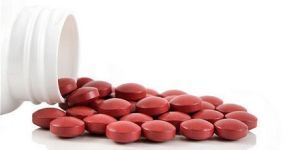Article
Sanofi Reports ‘No Superiority' Between Existing and Experimental MS Treatments
Author(s):
A phase 3 clinical trial has found no statistical superiority between two multiple-sclerosis (MS) treatments, Aubagio (teriflunomide) and Rebif (interferon beta 1-a).

A phase 3 clinical trial has found no statistical superiority between two multiple-sclerosis (MS) treatments, Aubagio (teriflunomide) and Rebif (interferon beta 1-a), Aubagio’s manufacturer, Sanofi’s Genzyme, announced last week.
In the two-year, randomized, rater-blinded comparator study, 324 adult patients with relapsing forms of MS were randomly selected to receive either an oral dose of teriflunomide (7 mg or 14 mg) once per day or injections of interferon beta 1-a.
The study found no significant difference between the two treatments concerning the endpoint of estimated annual relapse rate. The researchers found that 48.6% of the 109 patients receiving 7 mg of teriflunomide and 37.8% of the 111 patients receiving 14 mg of teriflunomide reached the primary endpoint, compared with 42.3% of the 104 patients receiving interferon beta 1-a.
Teriflunomide is an immunomodulatory, disease-modifying oral drug with anti-inflammatory properties, and interferon beta 1-a is a previously approved MS treatment. The current study, TENERE, is the second of five projected efficacy studies of teriflunomide to be completed; overall, the clinical program testing the drug’s safety and efficiency as an MS treatment will include over 4,000 trial participants from 36 countries. The remaining three studies incorporating teriflunomide—TOWER, TOPIC, and TERACLES—are all phase 3 trials as well.
Sanofi requested approval for Aubagio as an MS treatment in the US in October, and anticipates filing an application to make the drug available for sale in Europe sometime in 2012.




